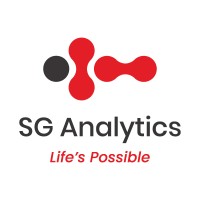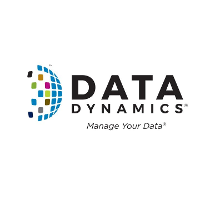With the marketing world evolving and becoming more complex, businesses are experiencing a growing need to incorporate data and analytics into their marketing plans. It equips them to understand their customers and how they interact with the brand. It is also assisting them in making more informed decisions about reaching their target audience and meeting their marketing objectives. Businesses are incorporating data-driven marketing strategies to generate more ROI.
Understanding Marketing Analytics
Marketing with data analytics indicates measuring, analyzing, and applying data to marketing campaigns to track the results of campaigns and enhance the ROI. Incorporating analytics implies using data and business intelligence for informed decision-making. This involves measuring marketing activity as well as performance while gathering insights into customer behavior. The goal is to understand better how customers are engaging with a specific brand.
Today data is changing the marketing game for all. Companies integrating data and analytics have reported profitability 5-6 percent higher than their peers. Data enables them to make informed decisions and improve their marketing ROI. The process begins with data collection and adding tools like Google Analytics to the website to collect information on the behavior of users. The real component is to analyze and interpret the collected data and apply the insights to the marketing campaigns. Businesses can incorporate data analytics into new as well as existing marketing campaigns.
However, it can often be difficult for businesses to decipher and figure out how to react to these insights. It is simply not enough to keep track of progress. This is the reason data and analytics are emerging as the most useful tool to interpret the accumulated data and use it to transform their marketing plan.
Read more: Data Analytics as a Service (DAaaS): A Brief Overview of the Next Data Evolution
Using Data Analytics in Marketing
Marketing with data analytics offers results. Research by Forrester highlighted that marketers who integrate five or more tools in their marketing analytics are 39% more likely to witness improvements in their marketing campaigns. It helps in removing the guesswork from the campaigns and allows marketers to make choices related to marketing spend. Marketing with data analytics enables businesses to set better goals, too. They can incorporate insights from past performance and determine whether there is a visible increase in web traffic from SEO.
Data analytics enables businesses to create better and more personalized campaigns. Personalization plays a significant role in marketing. Businesses cannot personalize their marketing strategies and messages to customers if they are now aware of their wants, needs, or behaviors. With consumers becoming incredibly selective of the brands they interact with, employing data to create amazing customer experiences is vital for success.
Finally, using data makes it easier for brands to grow their marketing budget. While securing a marketing budget is one of the biggest challenges for businesses, data analytics makes it much easier to design a case by incorporating the right insights into the marketing campaigns. Data analytics helps in proving to the executives that increasing the marketing spend is likely to have a measurable increase in sales.
Incorporating Data and Analytics into the Marketing Plan
Businesses are embracing data-driven campaigns and prioritizing data analysis skills. If you are a business trying to identify how to make use of all the data you’ve been collecting, the following insights will help you understand how data and analytics can help you revamp your marketing strategy.
Read more: From Awareness to Adoption: Marketers are Exploring New Ways for Technology Adoption
-
Personalizing the customer experience
Customers generate data with their habits. This data can be used to study and identify the browsing behavior of the consumer based on their previous purchase. This data further helps in designing a personalized marketing campaign for the target audience. The data can be used to design and send customized messages to customers. Business intelligence coupled with data analytics enables marketers to tailor their marketing campaigns that resonate with the target audience.
Business intelligence further equips them to identify the keywords that generate the most traffic. These keywords can be used in the website content and blog posts to rank higher on search engine pages. Analytics further helps in tracking the website’s click-through rate, providing marketers with an idea of how effective their website is in terms of SEO. If the click-through rate is low, businesses should optimize their website for better results. Additionally, data also helps in determining the websites that help in generating the most referral traffic.
-
Creating Content that Customers Care About
Businesses can leverage data and analytics to design content that their audience will love. Marketing analytics helps in understanding the type of content that can drive the most engagement. This data can be used to produce similar content that resonates with the audience. Based on the collected insights, marketers can create content with the latest trends to engage the audience as well as boost awareness of your business.
Marketers can also use data analytics to enhance the quality of their content. They can track the average time spent by the audience on their page. If the average time spent is low, it indicates that the content is not interesting enough. In such cases, marketers can use data analytics to improve the quality of their content.
Read more: Data & Analytics Strategy: Must-Have Crucial Elements for Decision Making
-
Enhancing Customer Journey
Almost 90% of digital marketers agree that understanding user journeys across different channels is an important marketing practice. Therefore, businesses should integrate analytics to rethink as well as improve their customer journey. Data analytics can assist in removing guesswork and creating a seamless experience.
Data analytics tools such as Google Analytics enable businesses to track metrics that indicate how customers engage with their brand. Some of the crucial factors to remember when re-designing the customer journey include the following:
-
Checking the content drill down and identifying pages that the customers visit the most.
-
Identifying opportunities to improve the web and social media pages.
-
Tracking the bounce rate to see how people behave on the website.
-
Boosting social media efforts
It is easy to employ data analytics and enhance social media campaigns. With the right tools, marketers can track the engagement of their posts as well as their reach. This helps in understanding the types of content that garner the most attention. Marketers can also use this data to generate similar content that attracts more engagement. The data can also be used to track the demographics of social media followers as well as to create targeted and relevant content.
Read more: Top Data Science Trends to Look Forward in 2023
-
Building a strong buyer persona
One of the best ways to employ big data and analytics is to design a buyer persona depending on the behavior of the target audience. This data helps in gaining insights into consumer needs and wants and thus helps in creating strong buyer personas to guide marketing efforts. By leveraging data analytics, marketers can create a buyer persona that can significantly help boost the success of their marketing efforts. With accurate buyer personas, businesses can align their marketing tactics with the requirements of their target audience.
Leveraging Data Analytics to Improve Marketing
Today data is considered the new gateway to customer insights and interests. By employing the collected information, brands can revitalize their marketing strategies and deliver accurate marketing messages to the right audience with the right channels.
Data and analytics are emerging as essential tools for businesses to stay a step ahead of the competition. Big data is a must for brands that are exploring opportunities to improve their decision-making as well as understand the customer journey to strengthen their marketing efforts. To launch a new marketing campaign or optimize an existing one, data analytics is assisting businesses in improving their results and helping their business grow.






























